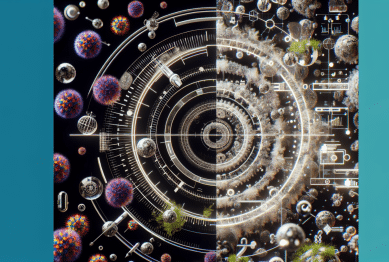Change and uncertainty can feel overwhelming, but what if they could be your secret weapons for building mental resilience? In this article, we uncover practical wellness strategies to help you embrace the chaos and turn it into strength. Keep reading to discover how!

The Power of Mental Resilience
Mental resilience is the ability to adapt and thrive in the face of stress, adversity, and unexpected change. In a world where change is constant, it’s no surprise that mental toughness has become an essential skill. But how exactly can embracing change lead to mental resilience? Let’s dive deeper into how embracing change is the key to building lasting resilience.
Mental resilience isn’t just about being “tough.” It’s about emotional flexibility, adaptability, and learning to cope with life’s inevitable ups and downs. People who cultivate resilience are more likely to handle stress with calm and clarity, rather than being overwhelmed or paralyzed by it. With constant global changes, from technological advancements to health crises, developing resilience is a necessity.
Understanding the Science Behind Mental Resilience
Mental resilience isn’t a trait you’re born with—it’s something you can build over time through conscious effort. Research shows that people who embrace change rather than resist it are more likely to experience positive outcomes in stressful situations (Carver et al., 2017). In fact, when we resist change, our brains are flooded with stress hormones, which can overwhelm our systems. On the other hand, those who accept change and find ways to adapt experience improved emotional regulation and physical health.
When you start viewing uncertainty as an opportunity for growth, your brain activates different neural pathways—those that foster optimism, problem-solving, and adaptability. This shift in mindset is the first step toward strengthening your mental resilience.
Why Embracing Change is Crucial for Building Resilience
Uncertainty is often the breeding ground for anxiety, frustration, and fear. However, the ability to tolerate uncertainty can actually enhance our emotional well-being. By accepting change, we begin to see it as an opportunity rather than a threat. Consider the uncertainty of a job loss or relationship breakdown—initially, these may seem like devastating blows. But when faced with change, you can reframe it as an opportunity to grow, learn, or shift your direction in life.
Studies suggest that people who actively seek out change and challenge themselves regularly are more likely to develop higher resilience levels (Bonanno et al., 2004). For example, someone who regularly changes their routine, learns new skills, or even travels to new places builds cognitive flexibility. The more flexible you become in adjusting to smaller, everyday changes, the better equipped you’ll be when faced with larger disruptions.
Wellness Practices to Embrace Change and Build Resilience
Here are several wellness practices that will not only help you embrace change but also fortify your mental resilience in the long run:
1. Mindfulness Meditation: Training Your Mind for Uncertainty
Mindfulness meditation has been proven to reduce stress and increase emotional regulation. It helps individuals focus on the present moment, which is especially beneficial when dealing with uncertainty. Mindfulness teaches you to accept your thoughts and emotions without judgment, making it easier to embrace change without feeling overwhelmed (Kabat-Zinn, 1990).
Research consistently supports the idea that mindfulness meditation can alter brain structures to better manage stress. One study found that regular mindfulness practice thickens the prefrontal cortex, which is responsible for decision-making and emotional regulation (Zeidan et al., 2010). By practicing mindfulness, you build a foundation for emotional resilience—learning to sit with discomfort, without letting it derail your focus or inner peace.
2. Physical Exercise: The Stress-Reliever You Need
Exercise is an excellent way to release built-up stress and tension, and it’s essential for mental resilience. Whether it’s yoga, running, or weightlifting, physical activity boosts the production of endorphins—your brain’s “feel-good” chemicals. This immediate relief from stress makes it easier to maintain a positive outlook, even during times of uncertainty.
Research shows that regular exercise increases the size of the hippocampus, the brain region responsible for memory and stress management (Erickson et al., 2011). In other words, by staying physically active, you’re also strengthening the parts of your brain that help you cope with challenges and uncertainty. But it’s not just about physical health—exercise is a great way to clear your mind, set goals, and gain confidence through achievement.
3. Cultivating a Growth Mindset: See Challenges as Opportunities
People with a growth mindset believe that their abilities can be developed over time. This mindset is critical when navigating periods of change. By focusing on what you can learn and how you can improve, you will see challenges as stepping stones rather than obstacles.
A growth mindset encourages curiosity, resilience, and perseverance—qualities that are essential for thriving in uncertainty. Research by Dweck (2006) found that individuals with a growth mindset are more likely to bounce back from setbacks because they view failure as part of the learning process.
When faced with a challenge, ask yourself: “What can I learn from this?” instead of “Why is this happening to me?” This simple shift in perspective can help you embrace even the most difficult changes.
4. Social Support: The Importance of Connection
Having a solid support system can make all the difference in times of change. Whether it’s family, friends, or a community group, leaning on others for emotional support provides a sense of stability and belonging.
Social support not only reduces feelings of isolation but also helps lower the physiological impacts of stress, including high blood pressure and elevated cortisol levels (Cohen et al., 2006). So, next time you feel uncertain, reach out to someone you trust. You don’t have to face challenges alone. It’s important to create and nurture a network of people who encourage and uplift you.
5. Journaling: Your Personal Tool for Reflection
Journaling is a simple but powerful tool to process your thoughts and emotions. By writing about your feelings, you create an outlet for stress and gain clarity on your situation. Journaling helps you reflect on your experiences and extract lessons from them, allowing you to learn from each challenge.
Writing about change also helps you track your progress. Over time, you’ll begin to see how you’ve grown stronger and more adaptable, reinforcing your sense of mental resilience. It’s also a great way to work through negative emotions and gain insight into your deeper fears and desires.
6. Reframe the Narrative: Transform Stress into Motivation
One powerful way to embrace change is by reframing how you think about stress. Research has shown that the way you perceive stress impacts how it affects your body. Those who see stress as a challenge—rather than a threat—are less likely to experience negative health effects. This mindset shift enables you to use stress as a motivator, pushing you to meet challenges head-on with confidence.
Why Uncertainty Isn’t Your Enemy
Uncertainty is often seen as something to fear, but what if we reframed it as something to embrace? In fact, many successful individuals thrive in uncertain environments. Entrepreneurs, leaders, and innovators all face constant change, yet they remain resilient by adapting to shifting circumstances.
The key to thriving in uncertainty is understanding that you are not a passive recipient of change. Instead, you are an active participant in the process. Every time you embrace a new challenge, you become more adaptable, more resourceful, and stronger.
Building Your Resilience Toolkit
As we’ve seen, building mental resilience requires a combination of practices that encourage adaptability, emotional regulation, and a positive outlook. By embracing change and uncertainty, you not only build resilience but also empower yourself to face the future with confidence. Keep using these strategies, and over time, you’ll discover that change becomes less daunting and more of an exciting challenge to tackle.
References
- Carver, C. S., Scheier, M. F., & Weintraub, J. K. (2017) Assessing coping strategies: A theoretically based approach. Available at: https://psycnet.apa.org (Accessed: 5 August 2025).
- Cohen, S., et al. (2006) Social relationships and health. Available at: https://psycnet.apa.org (Accessed: 5 August 2025).
- Dweck, C. S. (2006) Mindset: The new psychology of success. Available at: https://www.penguinrandomhouse.com (Accessed: 5 August 2025).









